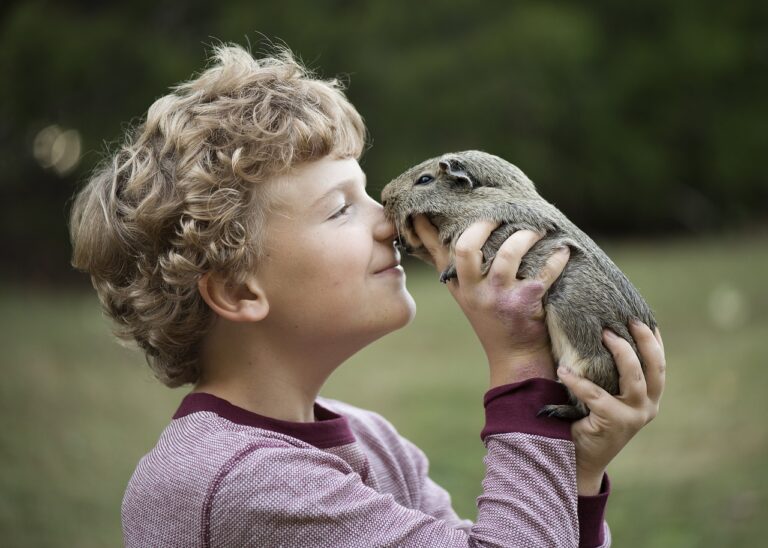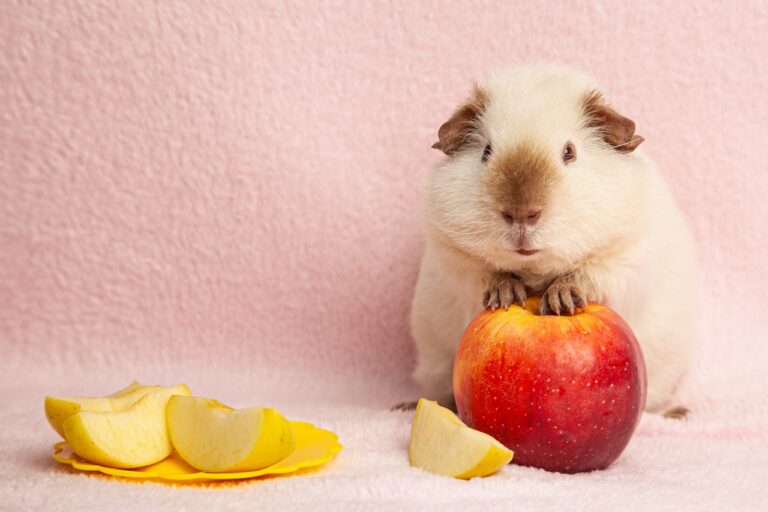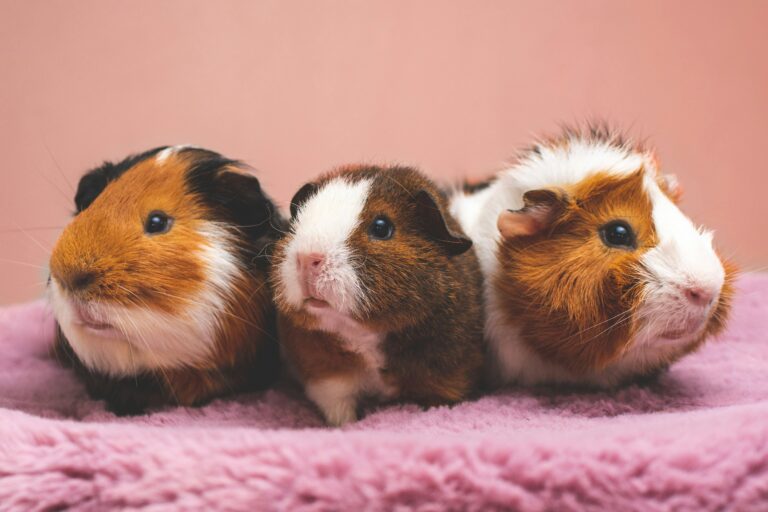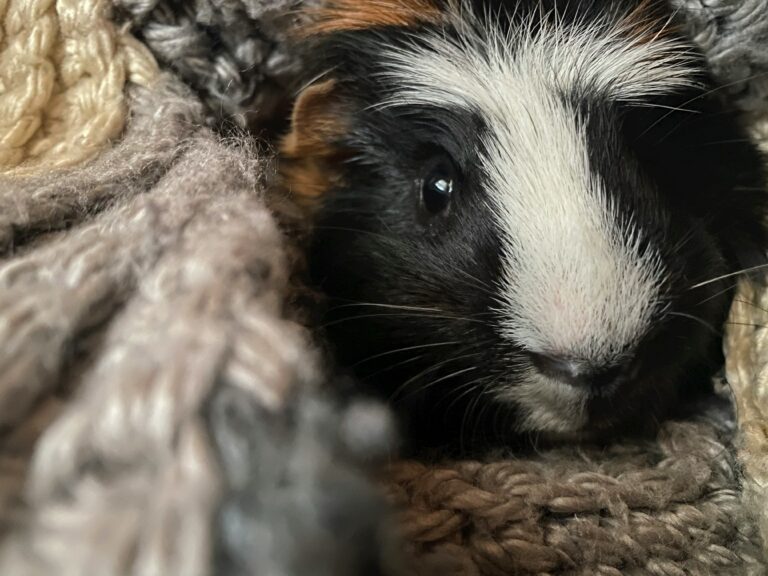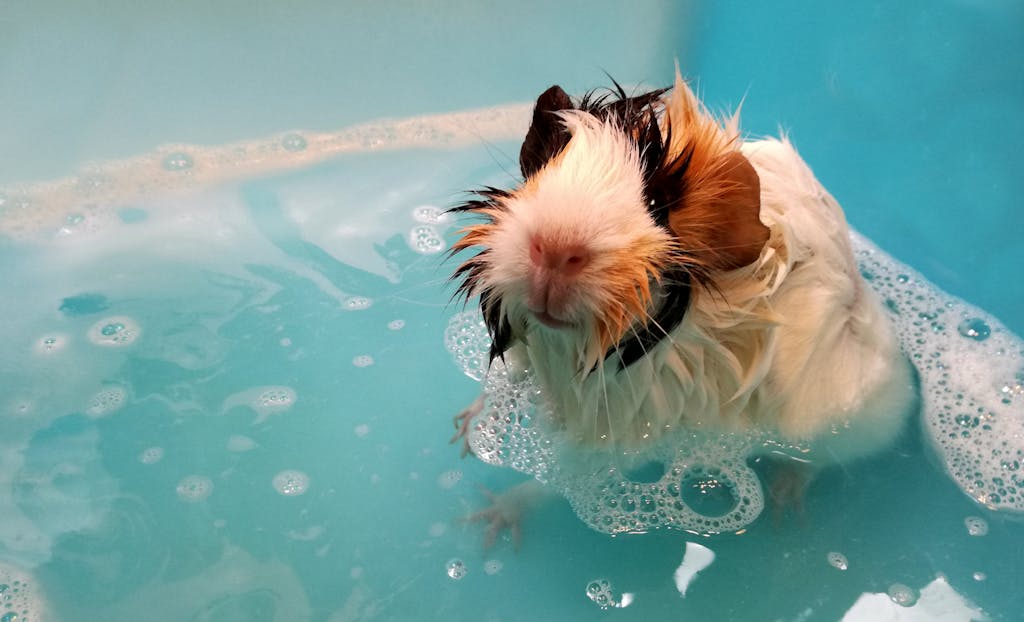How Long Do Guinea Pigs Live?
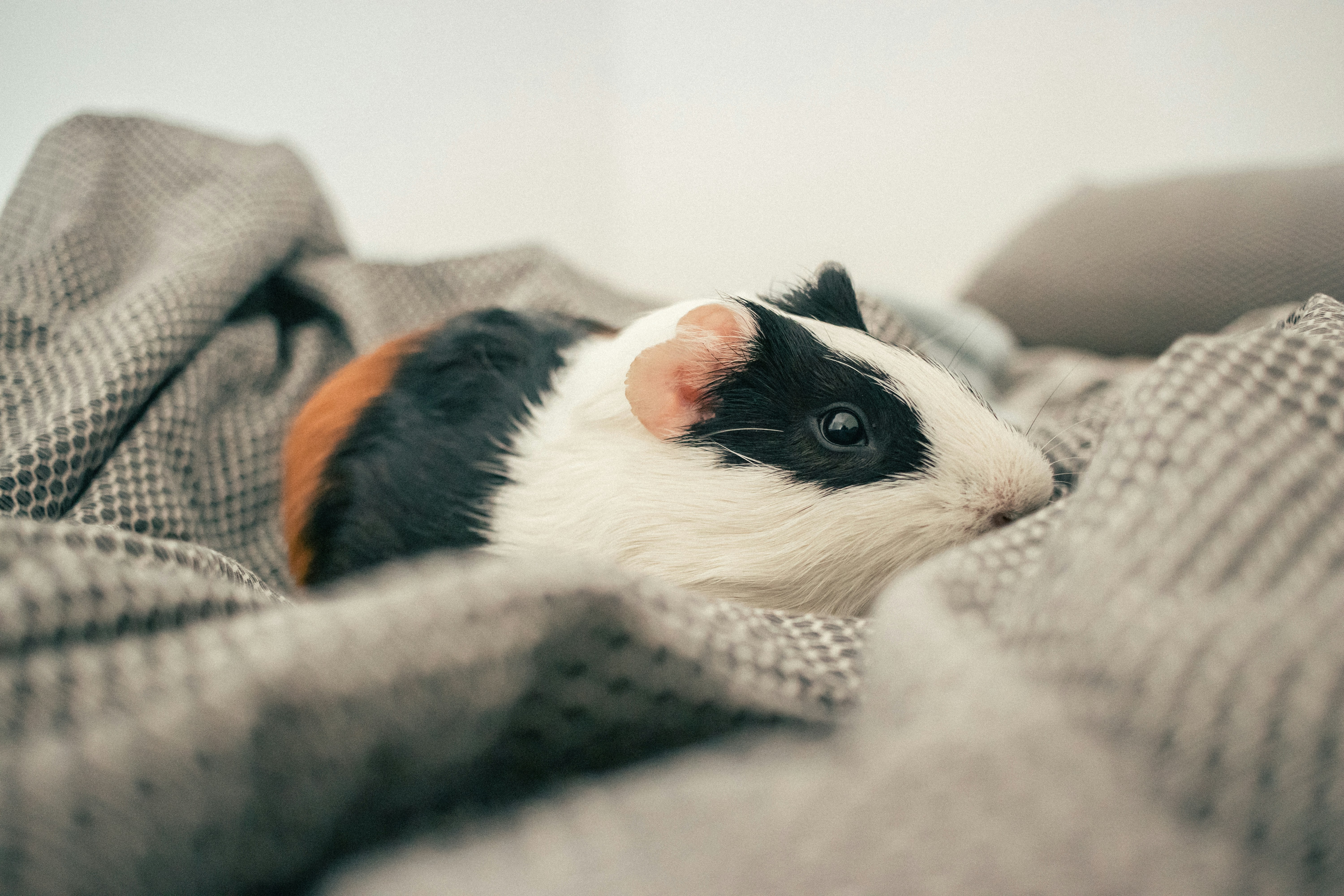
Guinea pigs, also known as cavies, are small, social rodents that have been domesticated for hundreds of years. They make popular pets due to their friendly nature, relatively simple care requirements, and the joy they bring to households. One of the most common questions prospective and current guinea pig owners have is about their lifespan.
In this article, we will delve into the factors that influence the lifespan of guinea pigs, their average life expectancy, and how to maximize the longevity of your furry friends!
Average Lifespan of Guinea Pigs
Guinea pigs typically live between 5 to 7 years, though some may live longer with proper care. This lifespan can vary based on several factors, including breed, genetics, diet, environment, and healthcare. In rare cases, guinea pigs have been known to live up to 8 or even 10 years, but these instances are exceptional and usually result from optimal care and genetics.
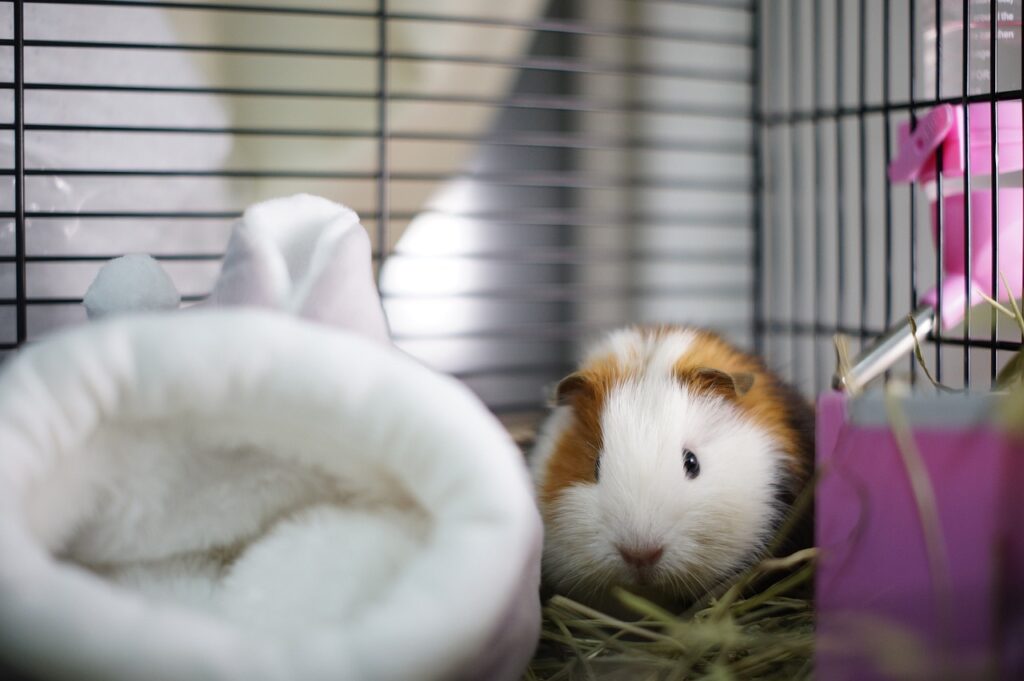
Factors Influencing Guinea Pig Lifespan
Breed and Genetics
Different breeds of guinea pigs can have varying lifespans. For instance, the average lifespan of an Abyssinian guinea pig may differ slightly from that of a Peruvian guinea pig. Generally, most domestic breeds fall within the 5 to 7-year range, but individual genetics play a significant role. Some guinea pigs are genetically predisposed to certain health conditions that can shorten their lifespan, while others may have a genetic makeup that allows them to live longer. Purebred guinea pigs might be more susceptible to genetic disorders due to less genetic diversity compared to mixed breeds.
Diet and Nutrition
Proper nutrition is paramount to the health and longevity of guinea pigs. A balanced diet that includes high-quality guinea pig pellets, fresh hay, and a variety of fresh vegetables is essential.
Vitamin C is particularly important because guinea pigs cannot produce it on their own, and a deficiency can lead to scurvy, a serious health condition. The recommended daily amount of vitamin C for a guinea pig is 10 to 20mg, but in some cases your guinea pig might need more. When in doubt, your veterinarian will be able to advise you on exactly how much vitamin C your guinea pig’s diet should be providing, and whether you might need to also offer supplements.
Ensuring your guinea pig receives adequate vitamin C, either through diet or supplements, can help prevent scurvy and other health issues, contributing to a longer life.
Key Dietary Components:
- High-Quality Pellets: Choose pellets specifically formulated for guinea pigs, as they contain essential nutrients and vitamin C. Avoid rabbit pellets, which do not have the necessary vitamin C.
- Fresh Hay: Timothy hay is a staple in a guinea pig’s diet, providing necessary fiber to keep their digestive system healthy and their teeth worn down.
- Fresh Vegetables: Offer a variety of vegetables such as bell peppers, kale, and broccoli. These vegetables are rich in vitamin C and other essential nutrients.
- Vitamin C Supplements: Between pellets and veggies, your guinea pig will usually be able to get the nessesary amount of vitamin C to keep it happy and healthy. If for some reason your guinea pig is not getting enough vitamin C, you can also consider supplements to prevent deficiency.
Housing and Environment
The living conditions of guinea pigs significantly impact their lifespan. A clean, spacious, and well-ventilated cage is necessary to prevent respiratory issues and other health problems. Guinea pigs are social animals, so providing companionship either from other guinea pigs or spending ample time interacting with them is crucial. Environmental enrichment, such as toys, tunnels, and hiding places, also plays a role in their mental and physical well-being.
Optimal Housing Tips:
- Cage Size: Ensure the cage is large enough for your guinea pig to move around comfortably. A minimum of 7.5 square feet for one or two guinea pigs is recommended, with additional space for each additional guinea pig.
- Bedding: Use absorbent, dust-free bedding to prevent respiratory problems. Avoid cedar and pine shavings, which can be harmful.
- Cleanliness: Regularly clean the cage to remove waste and prevent the build-up of bacteria and odors. Spot clean daily and do a thorough clean at least once a week.
- Toys and Enrichment: Provide chew toys, tunnels, and hiding places to keep your guinea pigs mentally stimulated and physically active.
Healthcare and Regular Veterinary Visits
Regular veterinary check-ups are vital to catch any potential health issues early. Guinea pigs are prone to certain conditions such as dental problems, respiratory infections, and urinary issues. Early detection and treatment of these conditions can significantly enhance the quality and length of their lives. Additionally, spaying or neutering guinea pigs can prevent reproductive-related health issues and contribute to a longer lifespan.
Common Veterinary Procedures:
- Dental Checks: Guinea pig’s teeth grow continuously, so regular dental checks are necessary to prevent overgrowth and related problems.
- Weight Monitoring: Regularly monitor your guinea pig’s weight to detect any sudden changes that might indicate health issues.
- Parasite Control: Routine checks for mites, lice, and other parasites can prevent infestations and related health problems.
- Vaccinations and Preventive Care: While guinea pigs do not require vaccinations like dogs and cats, preventive care, including a healthy diet and clean environment, is crucial.
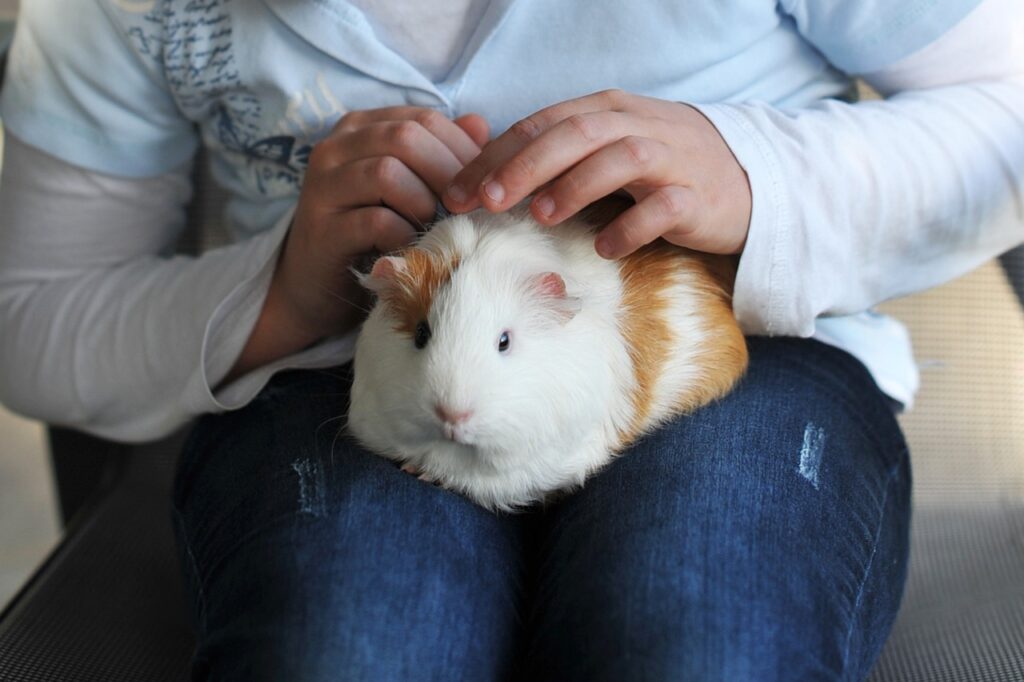
Exercise and Activity
Regular exercise is important for maintaining a guinea pig’s health. Ensuring they have enough space to move around and providing opportunities for play and exploration can prevent obesity and related health issues. An active guinea pig is typically a healthier and happier one.
Encouraging Activity:
- Floor Time: Allow your guinea pig to have supervised time outside the cage to explore and exercise.
- Interactive Toys: Provide toys that encourage movement, such as tunnels, balls, and chew toys.
- Social Interaction: Interact with your guinea pig daily through gentle handling and play to keep them active and engaged.
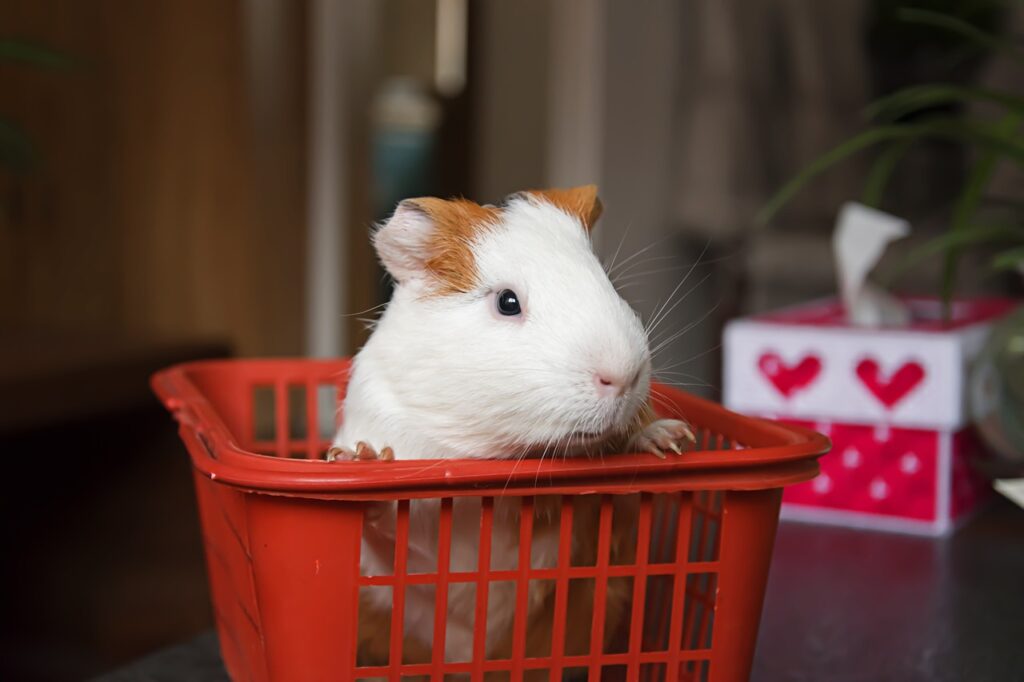
Common Health Issues in Guinea Pigs
Understanding common health issues that affect guinea pigs can help owners take proactive measures to prevent or address them. Here are some prevalent health problems:
Respiratory Infections
Guinea pigs are susceptible to respiratory infections, often caused by bacteria or poor living conditions. Symptoms include sneezing, coughing, and difficulty breathing. Maintaining a clean cage and providing proper ventilation can help prevent these infections. If you notice signs of respiratory distress, consult a veterinarian promptly.
Dental Problems
Guinea pigs have continuously growing teeth, and dental issues are common if their teeth do not wear down properly. Providing chew toys and a diet rich in hay can help maintain their dental health. Signs of dental problems include drooling, difficulty eating, and weight loss. Regular veterinary dental checks are important to prevent severe issues.
Scurvy
As mentioned earlier, vitamin C deficiency leads to scurvy. Symptoms include lethargy, swollen joints, and weight loss. Ensuring a vitamin C-rich diet can prevent this condition. If you suspect your guinea pig has scurvy, seek veterinary care immediately, as it is treatable with proper supplementation and diet adjustment.
Urinary Tract Problems
Guinea pigs can develop bladder stones and urinary tract infections. Symptoms include blood in urine, straining to urinate, and frequent urination. Providing a balanced diet and plenty of fresh water can reduce the risk of these issues. Avoid feeding high-calcium foods excessively, as they can contribute to bladder stones.
Parasites
External parasites like mites and lice can cause skin problems and discomfort. Regular grooming and maintaining a clean living environment can help prevent infestations. If you notice excessive scratching, hair loss, or scabs, consult a veterinarian for appropriate treatment.
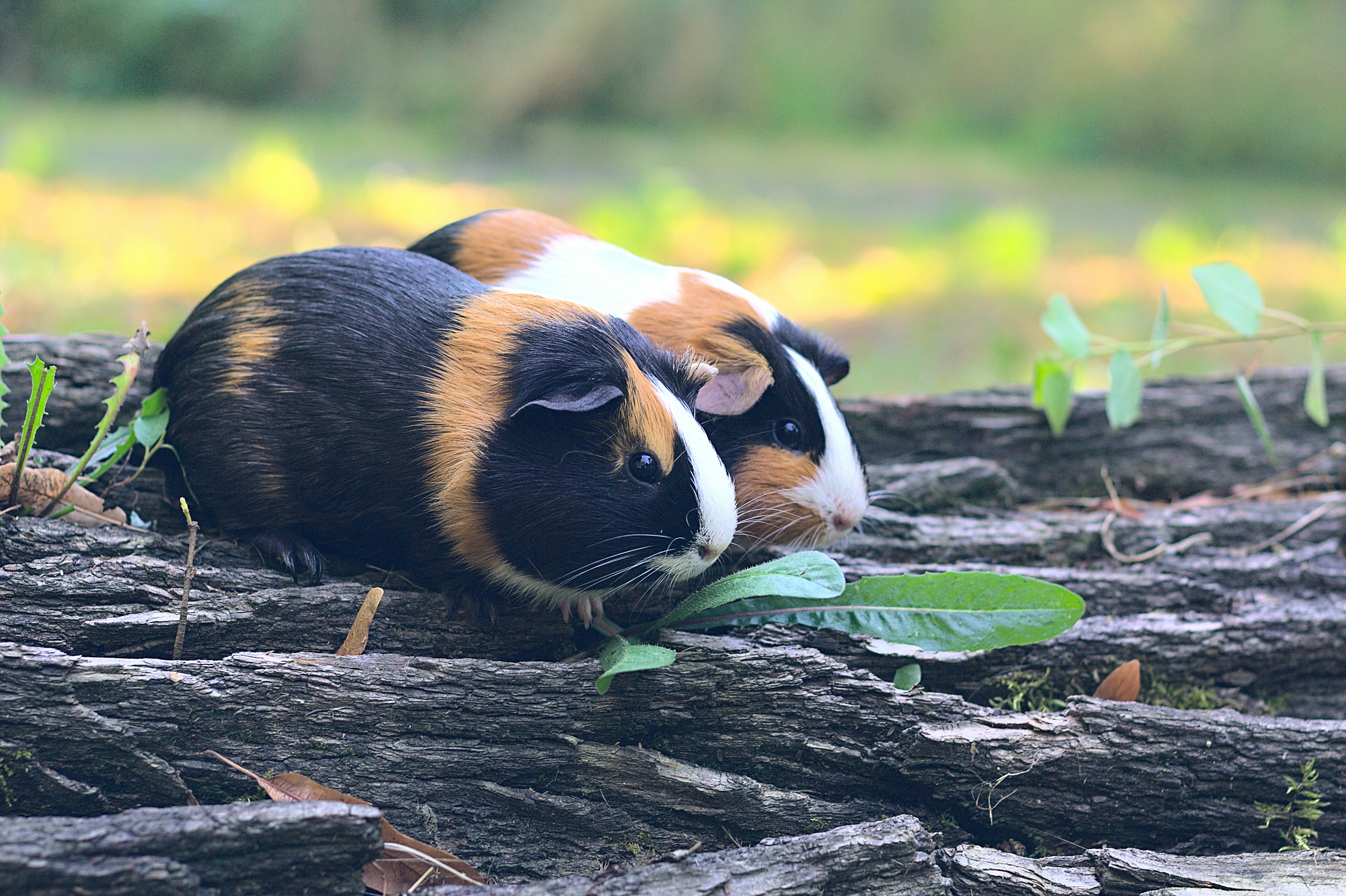
How to Maximize the Lifespan of Your Guinea Pig
Provide a Balanced Diet
Ensure your guinea pig has a diet that includes high-quality pellets, unlimited fresh hay, and a variety of fresh vegetables. Avoid foods that are harmful to guinea pigs, such as iceberg lettuce, onions, and chocolate.
On average, guinea pigs need 10 to 20mg of vitamin C daily. Provide vitamin C supplements if necessary.
Recommended Foods:
- Pellets: Choose fortified guinea pig pellets with added vitamin C.
- Hay: Timothy hay is ideal, but other types like orchard grass can also be used.
- Vegetables: Offer a variety of vitamin C-rich vegetables daily. Avoid feeding too many fruits, as the high sugar content can lead to obesity.
Maintain a Clean and Spacious Living Environment
Regularly clean your guinea pig’s cage to prevent the build-up of bacteria and waste. Provide ample space for them to move around and exercise. Enrichment activities and safe, chewable toys can also keep them mentally stimulated.
Cleaning Routine:
- Daily: Remove soiled food, clean water bottles, and spot clean soiled bedding.
- Weekly: Perform a thorough cleaning by replacing all bedding, disinfecting the cage, and cleaning toys and accessories.
Regular Veterinary Check-Ups
Schedule regular vet visits to monitor your guinea pig’s health. Address any signs of illness promptly and follow your vet’s advice regarding diet, care, and preventive measures.
Monitoring Health:
- Behavior: Note any changes in behavior, appetite, or activity levels.
- Physical Examination: Regularly check for lumps, sores, or abnormalities.
- Weight: Weigh your guinea pig regularly to monitor for any sudden changes.
Social Interaction and Companionship
Guinea pigs are social creatures and thrive on interaction. If possible, keep more than one guinea pig to provide companionship. Spend time daily interacting with your guinea pigs to keep them socially engaged!
Enhancing Social Interaction:
- Pairing: Introduce guinea pigs slowly to ensure they get along.
- Handling: Handle your guinea pig gently and regularly to build trust.
- Playtime: Provide toys and activities that encourage interaction.
Exercise and Enrichment
Provide opportunities for your guinea pigs to exercise. Use safe, supervised spaces outside their cage for them to explore and play. Enrichment toys and activities can prevent boredom and encourage physical activity.
Exercise Ideas:
- Obstacle Courses: Create small obstacle courses with tunnels and ramps.
- Foraging Toys: Hide treats in foraging toys to stimulate natural behaviors.
- Safe Play Areas: Designate a guinea pig-proofed area for supervised playtime.
Breeding and Lifespan
Breeding guinea pigs should be approached with caution. It can shorten the lifespan of female guinea pigs due to the physical strain of pregnancy and birth. Moreover, the risk of complications increases if a guinea pig gives birth after reaching a certain age (generally after 7 months for the first litter). If you’re considering breeding your pet, you can consult with a veterinarian to understand the risks and ensure it’s done responsibly.
Responsible Breeding Considerations:
- Age and Health: Only breed healthy guinea pigs of appropriate age.
- Genetic Diversity: Avoid inbreeding to reduce the risk of genetic disorders.
- Careful Monitoring: Provide extra care and monitoring for pregnant guinea pigs.
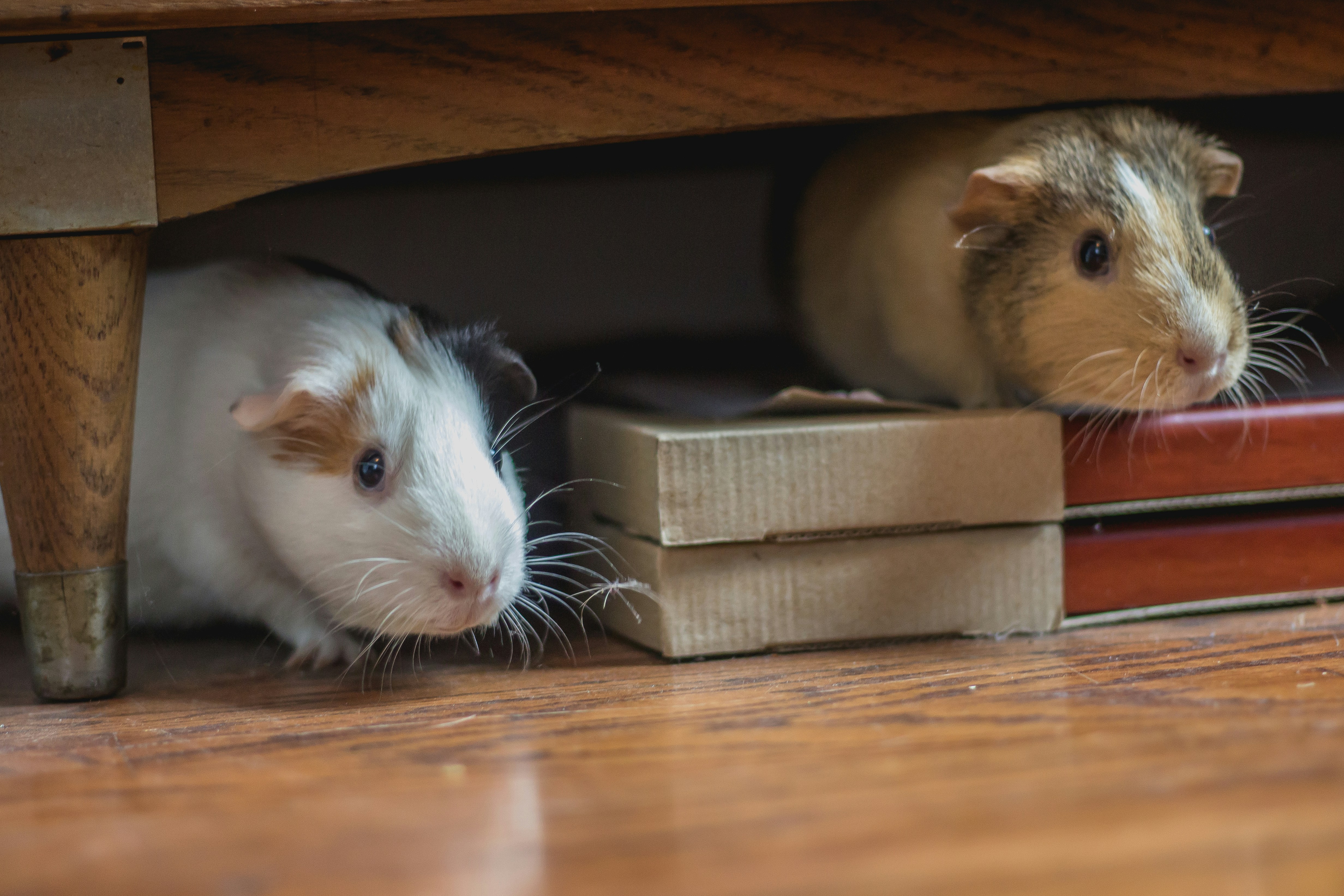
Signs of Aging in Guinea Pigs
As guinea pigs age, they exhibit signs similar to those of aging in other animals. Understanding these signs can help owners provide the best care for their senior guinea pigs:
Reduced Activity Levels
Older guinea pigs may become less active and spend more time resting. Providing soft bedding and easy access to food and water can help them stay comfortable.
Adjustments for Aging Guinea Pigs:
- Soft Bedding: Use softer, more supportive bedding to protect their joints.
- Lower Ramps: Ensure ramps and platforms are easy to navigate.
- Accessible Food and Water: Place food and water dishes within easy reach.
Weight Changes
Senior guinea pigs may lose weight or have difficulty maintaining a healthy weight. Monitor their diet closely and consult with a vet if you notice significant weight changes.
Dietary Adjustments:
- Nutrient-Rich Foods: Offer foods with high nutritional value.
- Frequent Feeding: Provide smaller, more frequent meals to encourage eating.
- Supplements: Consider veterinary-recommended supplements for senior guinea pigs.
Dental Problems
Aging guinea pigs are more prone to dental issues. Regular vet check-ups and providing appropriate chew toys can help manage their dental health.
Dental Care:
- Routine Checks: Ensure regular dental examinations by a veterinarian.
- Chew Toys: Provide plenty of chew toys to help keep teeth worn down.
Joint Stiffness and Arthritis
Older guinea pigs may develop joint stiffness or arthritis, leading to reduced mobility. Ensuring your guinea pig has a comfortable resting area can improve their quality of life.
Managing Arthritis:
- Comfortable Bedding: Use soft, supportive bedding to ease joint pain.
- Gentle Exercise: Encourage gentle exercise to maintain mobility.
- Pain Management: Consult with a veterinarian for pain management options.
Changes in Fur and Skin
The fur of older guinea pigs may become thinner and their skin more delicate. Gentle grooming and maintaining a clean living environment are important to prevent skin issues.
Skin and Fur Care:
- Regular Grooming: Gently groom your guinea pig to remove loose fur and prevent matting.
- Moisturizing: Use veterinarian-approved moisturizers for dry skin.
- Skin Checks: Regularly check for sores, lumps, or abnormalities.
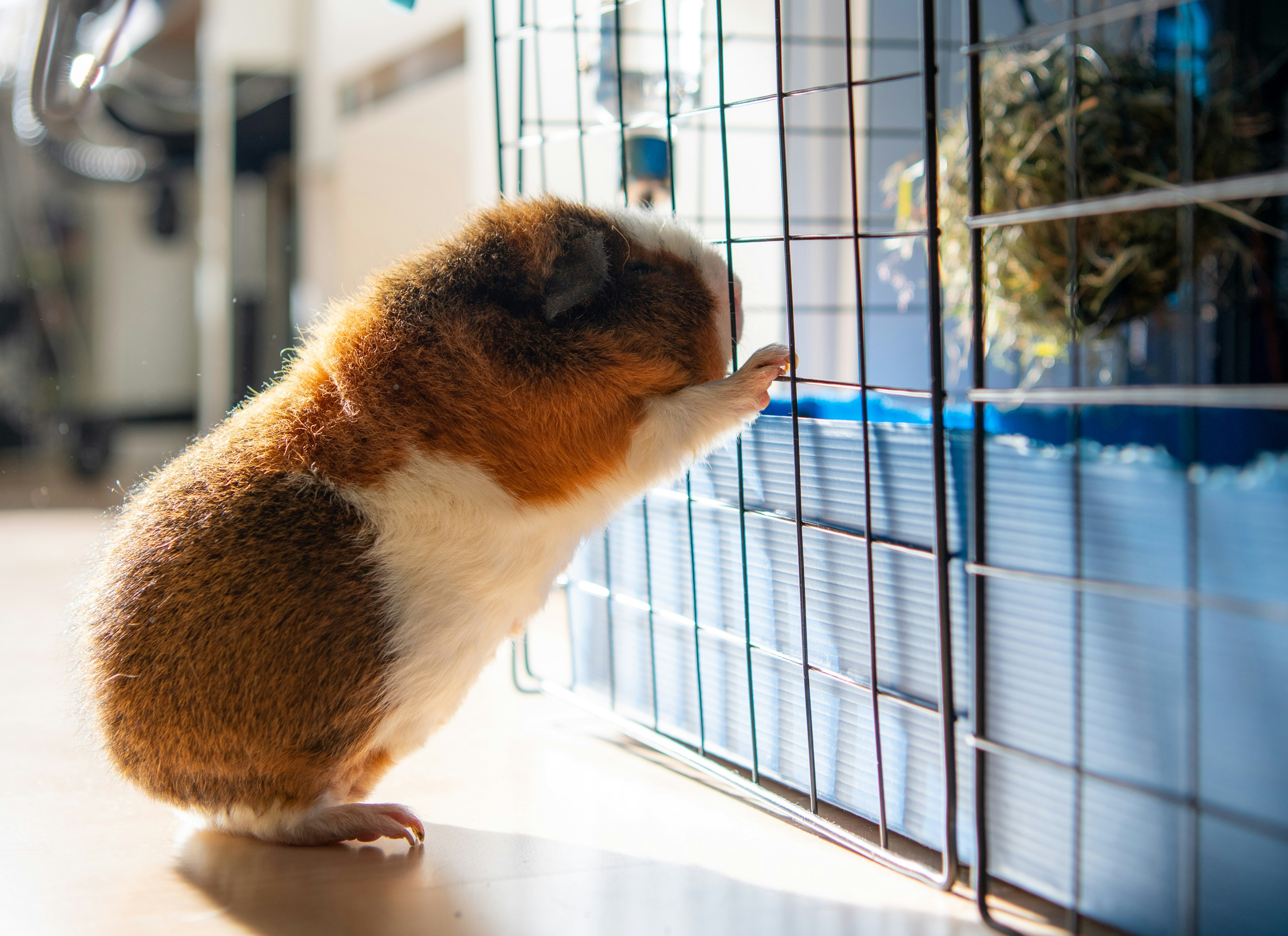
End-of-Life Care
As guinea pigs approach the end of their life, providing compassionate care is essential. Ensure they have a peaceful, comfortable environment, and continue to offer affection and interaction. Consult with a veterinarian to manage any pain or discomfort and discuss the best course of action when quality of life declines significantly. Sometimes, humane euthanasia may be the kindest option to prevent suffering.
Providing Comfort:
- Comfortable Bedding: Ensure a soft, warm resting area.
- Favorite Foods: Offer their favorite treats to encourage eating.
- Calm Environment: Maintain a quiet, stress-free environment.
- Veterinary Support: Work closely with your vet to manage pain and discomfort.
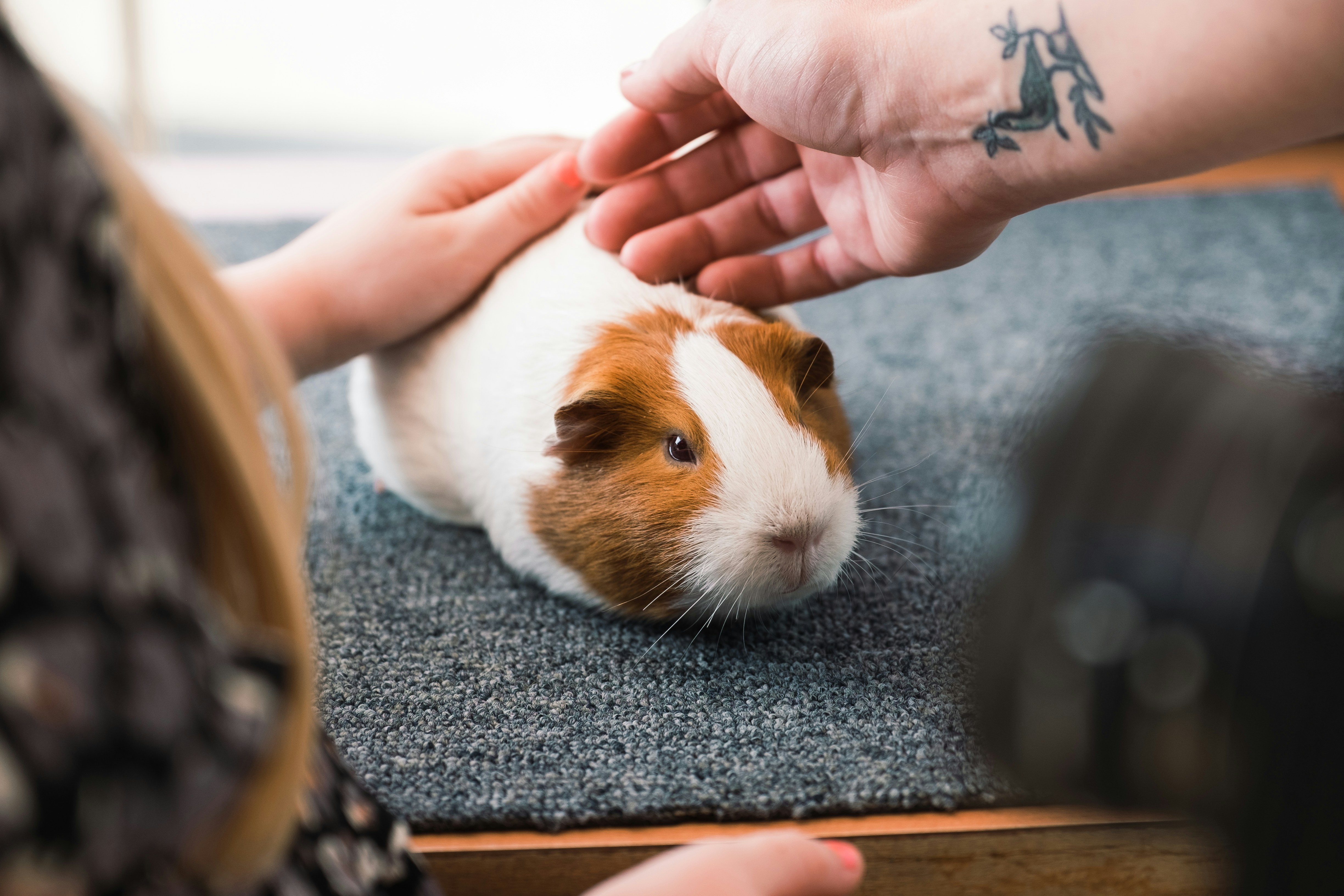

Frequently Asked Questions
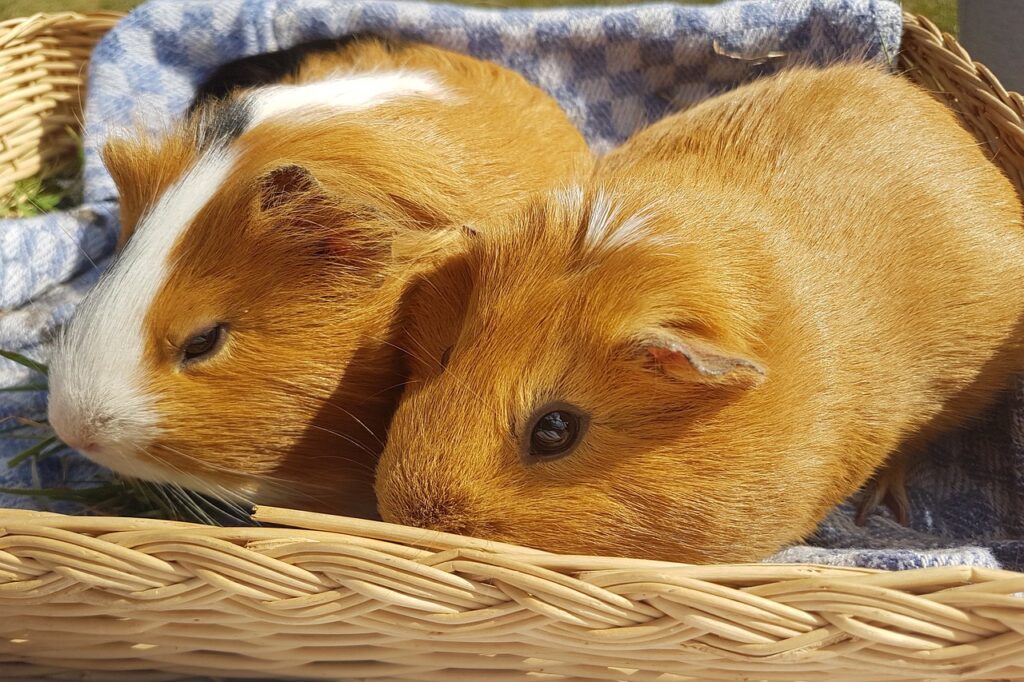
Conclusion
The lifespan of a guinea pig is influenced by a combination of factors including breed, diet, environment, healthcare, and genetics. By understanding these factors and providing optimal care, guinea pig owners can help ensure their pets live long, healthy, and happy lives!
Regular veterinary check-ups, a balanced diet rich in vitamin C, a clean and spacious living environment, social interaction, and opportunities for exercise and enrichment are key components in maximizing the lifespan of your guinea pig.
As your pet ages, remember to be attentive to their changing needs and provide compassionate end-of-life care. This extra care can make a significant difference in their overall well-being.

